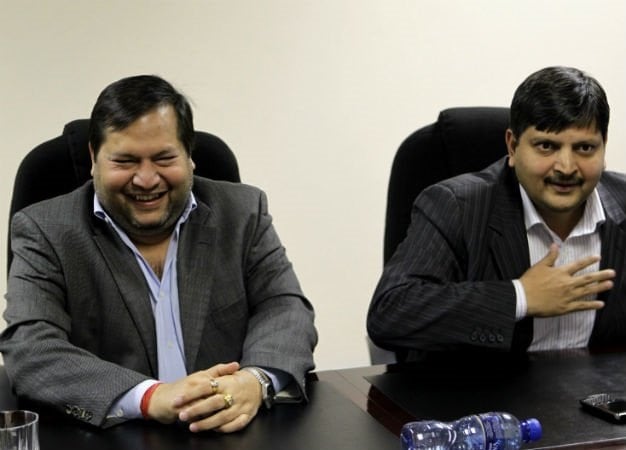
The US in 2019 in many ways resembles South Africa of the past ten years. Five more years of the Trump administration and a constitutional tradition stretching back more than 200 years will be seriously compromised, writes Serjeant at the Bar.
In a recent article Prof Penelope Andrews drew attention to the similarity of approach to adverse judicial findings between the Donald Trump administration and elements of the ruling ANC.
The comparison is startling and depressing; startling in that the same playbook appears to be employed, and depressing in that it reveals the fragility of democratically sustaining institutions, whether they were created over more than two centuries or 25 years ago.
Given that South Africa is battling to redress the consequences of the past decade, there is much to learn about the sustainability of constitutional democracy from this sorry period.
OPINION: Zuma, Trump and the destructive trend breeding cynicism about democracy
In the case of South Africa, the constitutional model, designed as it was to provide a basis for the development of a democracy based on freedom, dignity and equality for all who live in the country, came under a sustained assault. Had this style of "governance" continued for another decade, it was possible that the entire constitutional project would have collapsed under the weight of what was termed "state capture".
It is useful to reflect on the stages of state capture over this decade. The process began when a criminal trial of Schabir Shaik, who was close to Jacob Zuma, ended in the former being convicted of corruption and fraud. The court found that Shaik had a corrupt relationship with Zuma, the latter was only charged much later. Shortly thereafter he was dismissed as deputy president by then president Thabo Mbeki.
Within a year Zuma had extracted savage political revenge. He unseated Mbeki as president of the ANC, and after the 2009 national elections, assumed office as president of South Africa. The imperative to stave off criminal prosecution led directly to the destruction of the independence of the National Prosecuting Authority (NPA) by way of the appointment of a series of politically compliant national directors.
While, commendably, at least one appointee showed unexpected independence, Zuma finally found the perfectly compliant head, Shaun Abrahams under whose watch the NPA became a weapon to be employed by Zuma against his political opponents.
At the same time, the police unit tasked with dealing with corruption was neutralised as an effective agency as was the South African Revenue Service (Sars), the tax collection agency. All of these steps were made possible by virtue of the Constitution which provided the president with unfettered powers to make the key appointments.
Into this legally hollowed out system entered the Guptas, a family of modest wealth from India. From the compelling evidence presented to the Zondo commission it appears that they befriended Zuma, which became the pathway to a sustained campaign of predation of state-owned enterprises, successful tenders for State contracts and ended in credible allegations of massive influence over key ministerial appointments made by Zuma.
Judging from evidence provided to a judicial commission of inquiry, they spread their ill-gotten gains among a number of influential politicians. Perhaps the most ambitious part of this predation involved the acquisition of a fleet of nuclear power stations from Russia. In this case the nuclear road led to Vladimir Putin who had pushed Zuma to contract for the acquisition of nuclear plants that the country could not possibly afford.
When the Treasury pushed back against this form of financial suicide, Zuma fired the minister of finance. This time the capital markets reacted, the rand plunged in value and Zuma was forced to appoint a minister who was fiercely independent.
Policy of total capture
As the Zuma presidency continued to implement a policy of total capture of the very institutions which were supposed to hold government accountable, Parliament was supine. The governing party was totally beholden to its leader and hence its parliamentary representatives became no more than a chorus cheering the president and his actions.
To buttress support for the Zuma administration, the British PR company Bell Pottinger was engaged. It developed a media campaign to promote the idea that opposition to Zuma was orchestrated by "white monopoly capital", aided and abetted by those within the ruling party who resisted Zuma. Hence the population were presented with a discourse that framed the debate: the people represented by Zuma and his government who were committed to the racial transformation of the economy as opposed to white capitalists and a bunch of black quislings (or "clever blacks" as Zuma described some of his opponents) who were determined to preserve the economic status quo.
Ultimately a combination of internal party resistance together with sustained activity from civil society that threatened the governing party's hegemony at the polls brought about the end of the Zuma presidency. But that is to tell only part of the story.
The opposition to state capture through these trying times was to be found in an independent judiciary led by Chief Justice Mogoeng Mogoeng which consistently held the executive to the standards of the Constitution. Judicial review was sourced in a Constitution that provides that all public power is to be exercised according to law. It provided the essential guard rail.
At the same time the then occupant of another constitutionally created institution, the public protector exposed levels of government corruption to an ever-anxious public. And sections of the media, while under great political pressure, produced extremely well researched exposes of the Guptas, the nuclear deal and the manner in which public funds, needed to transform the lives of millions of poor people in a disturbingly unequal society, were secreted out of the country into the coffers of carpet baggers.
There are obvious differences between the many countries, the constitutional institutions of which are currently under stress including Brazil, India, Hungary and the United States (US). Turning directly to the US.
Market pressures an important constraint
South Africa does not have a party political system where the ruling party could lose power. Its constitutional tradition only reaches back for 25 years. But it does not have the equivalent of Fox News, a dominant network which is no more than a purveyor of Trump propaganda.
Unlike the US our system of judicial appointment that is not left primarily in the hands of the president. Whatever the left populists might think, South Africa's vulnerability to the exigencies of external pressures from capital markets proved to be an important constraint on Zuma's ability to rule as he pleased. The US is relatively free of similar pressures.
However, the weakness of legislative oversight, the framing of a discourse which pits "the people" against all who oppose executive excess, the cult of the leader who is all knowing, and the constitutional power of a president to bend institutions to his will and sustained levels of xenophobia (both in relation to migrants and the manner in which racial politics are conducted) are common themes. So is the capture of a political party which behaves totally in a transactional way and thus guts the oversight powers of the legislature).
In the US it is about low taxes for corporates and high net worth individuals, deregulation in order to increase short term profit and the appointment of judges who will be the gate keepers of a reactionary political project. In South Africa it was about access to improved rent capture.
The US in 2019 resembles South Africa 2009-2018 in so many ways. Five more years of the Trump administration and a constitutional tradition stretching back more than 200 years will be seriously compromised. And that should give us all pause about the sustainability of the constitutional form of governance.
Indeed, if South Africa 2019 is any guide, a change to a president deeply committed to the Constitution does not, of itself turn back the clock. The damage can take years to repair.
- Serjeant at the Bar is a senior legal practitioner with a special interest in constitutional law.
** Want to respond to the columnist? Send your letter or article to voices@news24.com with your name, profile picture, contact details and location. We encourage a diversity of voices and views in our readers' submissions and reserve the right not to publish any and all submissions received.
Disclaimer: News24 encourages freedom of speech and the expression of diverse views. The views of columnists published on News24 are therefore their own and do not necessarily represent the views of News24.




 Publications
Publications
 Partners
Partners























